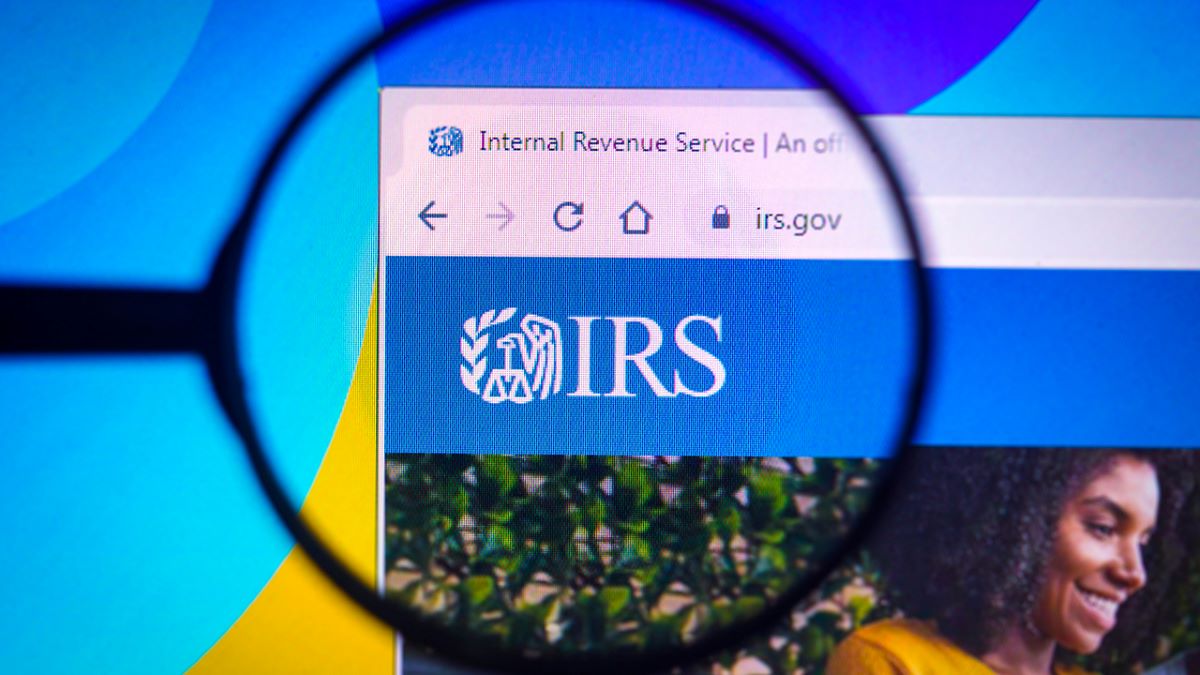

Finance
How To Get A Job In Accounting
Published: October 12, 2023
Looking to kickstart your finance career? Learn how to land a job in accounting with our expert tips and guidance.
(Many of the links in this article redirect to a specific reviewed product. Your purchase of these products through affiliate links helps to generate commission for LiveWell, at no extra cost. Learn more)
Table of Contents
- Introduction
- Step 1: Researching the Accounting Profession
- Step 2: Acquiring the Necessary Education and Qualifications
- Step 3: Gaining Relevant Experience
- Step 4: Building a Strong Accounting Resume
- Step 5: Networking in the Accounting Field
- Step 6: Preparing for Accounting Job Interviews
- Step 7: Applying for Accounting Jobs
- Step 8: Following Up after Job Applications
- Conclusion
Introduction
Getting a job in accounting can be an excellent career choice for those who have a strong interest in finance, numbers, and analyzing financial data. The demand for accounting professionals continues to grow as businesses require accurate financial reporting and compliance with regulations. If you’re aspiring to enter the accounting field, there are certain steps you can take to improve your chances of securing a job in this competitive industry.
In this article, we will outline a comprehensive guide on how to get a job in accounting. We will discuss the importance of researching the accounting profession, acquiring the necessary education and qualifications, gaining relevant experience, building a strong accounting resume, engaging in networking opportunities, preparing for accounting job interviews, submitting job applications, and following up after applying.
Whether you’re just starting your accounting career or looking to transition into a new role, following the steps laid out in this guide will help you navigate through the job search process and increase your chances of landing the accounting job you’ve been aiming for.
It’s important to note that while this guide provides valuable insights and strategies, no guarantee of employment can be made. Job market conditions and individual circumstances can vary, so it’s essential to tailor your approach to your unique situation and adjust your strategies as needed.
Without further ado, let’s dive into the step-by-step process of how to get a job in accounting.
Step 1: Researching the Accounting Profession
Before embarking on your journey to secure a job in accounting, it’s crucial to research and gain a deeper understanding of the profession. Accounting encompasses various fields, such as financial accounting, management accounting, tax accounting, and auditing. By familiarizing yourself with these different areas, you can identify your areas of interest and align your career goals accordingly.
Start by exploring the educational requirements for accounting positions. Typically, a bachelor’s degree in accounting or a related field is required, while some employers may prefer candidates with advanced degrees or certifications such as Certified Public Accountants (CPA) or Chartered Accountants (CA). Understanding the educational landscape will help you plan your academic journey and ensure you meet the necessary qualifications.
Additionally, researching the job market trends and demand for accountants in your desired location can provide valuable insights. It will help you gauge the availability of job opportunities, industry growth, and the specific skills and experience that employers are seeking. Keep an eye on industry publications, job boards, and professional networking platforms to stay updated with the latest developments and job openings.
Moreover, consider networking with professionals in the accounting field. Connecting with experienced accountants can provide you with valuable advice, industry insights, and potential job leads. Attend industry events, join professional organizations, and utilize online platforms like LinkedIn to expand your network and learn from those already established in the field.
Furthermore, make sure to research the companies and organizations that interest you. Gain knowledge about their size, industry, culture, values, and financial performance. This information will not only help you target your job search efforts more effectively but also allow you to tailor your application materials and interviews to align with each specific company’s needs and expectations.
By conducting thorough research on the accounting profession, educational requirements, job market trends, networking opportunities, and targeted companies, you will have a solid foundation to start your path towards a successful accounting career. This knowledge will guide your decision-making process and give you a competitive advantage throughout your job search.
Step 2: Acquiring the Necessary Education and Qualifications
Acquiring the necessary education and qualifications is vital when pursuing a career in accounting. Educational requirements vary depending on the position and employer, but a bachelor’s degree in accounting or a related field is typically a minimum requirement.
Start by researching accredited educational institutions that offer accounting programs. Look for schools that are recognized for their strong accounting curriculum, experienced faculty, and career support services. Consider factors such as location, cost, and program structure to find a program that best suits your needs and goals.
Enrolling in an accounting program will provide you with a solid foundation in financial accounting, managerial accounting, auditing, taxation, and other core areas of accounting. It will also equip you with analytical and critical thinking skills essential for a successful career in accounting.
In addition to formal education, consider pursuing professional certifications to enhance your credentials and increase your career prospects. The most recognized certification in accounting is the Certified Public Accountant (CPA) designation. Becoming a CPA demonstrates your proficiency in accounting principles, ethics, and financial reporting. The requirements to become a CPA vary by jurisdiction, but generally, it involves completing a specific number of accounting credits, passing the CPA exam, and fulfilling work experience requirements.
Other certifications, such as the Certified Management Accountant (CMA) or Certified Internal Auditor (CIA), can also be beneficial for specific career paths within the accounting field. Research the different certifications available and determine which ones align with your career goals.
While pursuing your education, consider internships or part-time positions in accounting firms or corporate finance departments. Gaining practical experience will not only enhance your learning but also provide valuable insights into the day-to-day operations of an accounting professional. Internships can also serve as a gateway to full-time job opportunities upon graduation.
Continuing education is also essential in the accounting field, as it ensures you stay updated with the latest developments and advancements in accounting practices and regulations. Consider attending professional development courses, seminars, or workshops to enhance your skills and knowledge.
By acquiring the necessary education and qualifications, including a relevant degree and professional certifications, you will demonstrate to potential employers that you have the foundational knowledge and skills required for a successful career in accounting. These credentials will not only make you a more competitive candidate but also provide you with the confidence to excel in your future roles.
Step 3: Gaining Relevant Experience
Gaining relevant experience is essential in the accounting field to demonstrate your practical skills, enhance your knowledge, and make yourself more marketable to potential employers.
One way to gain valuable experience is through internships or entry-level positions in accounting firms, corporate finance departments, or governmental agencies. These opportunities allow you to apply your theoretical knowledge in real-world scenarios, develop practical skills, and gain exposure to different areas of accounting.
During your internship or entry-level role, take on responsibilities that align with your career goals. Seek opportunities to work on diverse projects, such as financial statement preparation, tax calculations, audits, or budgeting. Be proactive in asking for feedback and guidance from your supervisors or mentors to continuously improve your skills.
In addition to internships, consider volunteering your accounting skills to non-profit organizations or community projects. Not only does this give you practical experience, but it also showcases your commitment to using your accounting skills for the greater good.
Another avenue to gain experience is through part-time or freelance accounting work. You can offer bookkeeping services, tax preparation, or financial consulting to small businesses or individuals. This not only helps you build your professional network but also provides practical experience in working with clients and managing financial records.
Additionally, consider joining professional organizations or clubs related to accounting. Many of these organizations offer opportunities for networking, professional development, and gaining experience through case competitions or leadership roles. Actively participating in these activities demonstrates your commitment to the field and allows you to connect with seasoned professionals who can provide valuable guidance and mentorship.
Continuous learning is also crucial in gaining relevant experience. Stay up-to-date with the latest accounting regulations, software tools, and industry trends. Consider taking online courses or attending workshops to enhance your technical skills and broaden your knowledge base.
By gaining relevant experience through internships, entry-level positions, volunteering, and part-time work, you not only solidify your understanding of accounting principles and practices but also demonstrate your commitment, adaptability, and willingness to learn. This practical experience will make you a more attractive candidate to potential employers and give you a competitive edge in the job market.
Step 4: Building a Strong Accounting Resume
A strong accounting resume is crucial in attracting the attention of hiring managers and showcasing your qualifications and relevant skills. Here are some key tips to help you build a compelling accounting resume:
1. Tailor your resume to fit the job: Customize your resume for each specific job application by highlighting the most relevant skills and experiences. Study the job description and identify key keywords and requirements that you can emphasize in your resume.
2. Start with a strong summary or objective statement: Begin your resume with a concise summary or objective statement that highlights your key accomplishments, skills, and career goals. This will provide a quick snapshot of your qualifications for the hiring manager.
3. Showcase your educational background and certifications: Highlight your educational achievements, including your degree in accounting or a related field. Include any additional certifications or licenses you have obtained, such as CPA or CMA. List relevant coursework or academic projects that demonstrate your knowledge in specific areas of accounting.
4. Highlight your relevant accounting skills: Create a dedicated skills section to showcase your technical skills in areas such as financial reporting, budgeting, tax preparation, or auditing. Include both technical skills (e.g., proficiency in accounting software) and soft skills (e.g., attention to detail, analytical thinking).
5. Include relevant work experience: List your work experience in reverse-chronological order, starting with the most recent position. Include the company name, job title, dates of employment, and a description of your responsibilities and accomplishments. Quantify your achievements whenever possible to provide measurable results.
6. Emphasize your accounting software proficiency: In today’s digital age, proficiency in accounting software is highly valued. Include a section that highlights your proficiency in software such as QuickBooks, Excel, SAP, or any other relevant accounting tools.
7. Highlight your attention to detail and accuracy: Attention to detail is crucial in accounting. Share examples of how you have demonstrated accuracy and attention to detail in your previous roles, such as identifying discrepancies in financial statements or ensuring compliance with tax regulations.
8. Include relevant extracurricular activities and volunteer work: If you have participated in relevant extracurricular activities or volunteered in accounting-related roles, include them on your resume. This demonstrates your commitment to the field and your willingness to go above and beyond.
9. Proofread for errors: Mistakes on a resume can leave a negative impression, so be sure to thoroughly proofread for spelling, grammar, and formatting errors. Consider having a trusted friend or mentor review your resume for feedback and suggestions.
10. Keep your resume concise and well-organized: Aim for a one- to two-page resume, focusing on the most relevant information. Use bullet points and clear headings to make your resume easy to scan for hiring managers.
By building a strong accounting resume that focuses on relevant skills, experience, and achievements, you can increase your chances of getting noticed by potential employers and securing the accounting job you desire.
Step 5: Networking in the Accounting Field
Networking is a vital component of a successful job search in the accounting field. Building relationships with professionals in the industry can open doors to job opportunities, provide valuable insights, and expand your knowledge base. Here are some key steps to effectively network in the accounting field:
1. Attend industry events and conferences: Industry events, conferences, and seminars provide excellent opportunities to connect with other professionals in the accounting field. Take advantage of these events to engage in conversations, exchange business cards, and learn about the latest trends and advancements in the industry.
2. Join professional organizations: Become a member of accounting professional organizations such as the American Institute of Certified Public Accountants (AICPA) or local accounting associations. These organizations often hold networking events, seminars, and webinars that can help you connect with industry experts and potential employers.
3. Utilize online networking platforms: Online platforms such as LinkedIn can be powerful tools for networking in the accounting field. Create a professional profile and actively engage by connecting with other professionals, participating in industry groups, and sharing relevant content. Join accounting-related discussions and contribute insights to establish yourself as an active and knowledgeable member of the community.
4. Seek mentorship opportunities: Find experienced professionals in the accounting field who can provide guidance and mentorship. They can offer valuable advice, share their industry insights, and potentially introduce you to their professional networks. Reach out to professionals you admire and express your interest in learning from them.
5. Attend career fairs and company recruiting events: Career fairs and recruiting events hosted by accounting firms and companies provide networking opportunities. Research the participating organizations beforehand, prepare your elevator pitch, and bring copies of your resume to distribute to potential employers.
6. Leverage your educational institution’s resources: Many universities and colleges have career centers or alumni networks that can assist with networking in the accounting field. Attend alumni events, utilize online directories, and connect with fellow alumni who are working in accounting roles.
7. Engage in informational interviews: Informational interviews are informal conversations with professionals in the accounting field to learn more about their experiences and gain valuable insights. Reach out to professionals in your desired field and request a brief meeting or phone call to ask questions and gather advice.
8. Maintain and nurture your network: Networking is an ongoing process. Stay in touch with your connections, send personalized emails or messages to check in, and offer your assistance when possible. Building meaningful relationships takes time and effort, so be proactive in cultivating and nurturing your network.
Remember, networking is not just about asking for job opportunities. It’s about building authentic relationships, learning from others, and mutually supporting one another. Approach networking with a genuine interest in connecting with professionals in the accounting field, and you’ll find that it can be a valuable asset in your job search.
Step 6: Preparing for Accounting Job Interviews
Preparing for accounting job interviews is crucial to make a positive impression on potential employers and increase your chances of landing the job. Here are some key steps to help you effectively prepare:
1. Research the company: Thoroughly research the company where you have an interview scheduled. Understand their industry, mission, values, recent news, and any specific challenges or opportunities they may be facing. This knowledge shows your genuine interest and helps you tailor your answers to align with their goals.
2. Review common accounting interview questions: Familiarize yourself with common accounting interview questions and prepare thoughtful and concise answers. Practice articulating your experiences, accomplishments, and how you have demonstrated your accounting skills in previous roles.
3. Brush up on technical skills: Expect technical questions related to accounting principles, financial analysis, or specific areas of expertise. Review key accounting concepts, regulations, and software applications. Practice solving accounting problems and be confident in explaining your approach.
4. Prepare anecdotes and examples: Be ready to share specific examples of situations where you have used your accounting skills, solved problems, or faced challenges. Use the STAR (Situation, Task, Action, Result) method to structure your responses and provide a clear and concise explanation.
5. Dress professionally: Dress in professional attire that aligns with the company’s dress code. Opt for conservative and well-fitting clothing to create a polished and confident impression.
6. Bring necessary documents: Prepare a folder or portfolio to carry copies of your resume, references, and any relevant certifications or licenses. Also, bring a notepad and pen to jot down important points or questions during the interview.
7. Prepare intelligent questions: Prepare a list of thoughtful questions to ask the interviewer. This not only demonstrates your interest in the company and the role but also helps you gather important information to determine if it aligns with your career goals.
8. Practice good communication skills: Practice good verbal and non-verbal communication skills. Pay attention to your body language, maintain eye contact, speak clearly and confidently, and actively listen to the interviewer. Take your time to compose your answers before responding.
9. Be prepared for behavioral interviews: Many accounting interviews incorporate behavioral questions to assess your problem-solving skills, adaptability, and ability to work in a team. Prepare for these types of questions by reflecting on past experiences that demonstrate these qualities.
10. Follow up after the interview: Send a thank-you email or note to the interviewers within 24 hours to express your gratitude for the opportunity and to reiterate your interest in the position. This simple gesture shows your professionalism and leaves a positive impression.
By thoroughly preparing for accounting job interviews, you can showcase your knowledge, skills, and enthusiasm for the role. Be confident in your abilities and demonstrate your readiness to contribute to the team, ultimately increasing your chances of securing the accounting job.
Step 7: Applying for Accounting Jobs
Applying for accounting jobs requires a strategic and focused approach to maximize your chances of securing interviews and ultimately landing a job. Here are some key steps to effectively apply for accounting jobs:
1. Tailor your resume and cover letter: Customize your resume and cover letter for each job application. Highlight your relevant skills, experiences, and qualifications that align with the specific requirements of the job. Tailoring your application materials shows the employer that you’ve taken the time to understand their needs.
2. Pay attention to the job description: Read the job description thoroughly and understand the key responsibilities and qualifications. Identify the keywords used in the description and incorporate them into your resume and cover letter to optimize your application for applicant tracking systems and catch the attention of hiring managers.
3. Showcase your achievements: Highlight your accomplishments and quantifiable results in previous roles. Include specific examples of how you saved costs, improved processes, or contributed to the financial success of the organization. These achievements demonstrate your value and impact as an accounting professional.
4. Prepare a professional online presence: Ensure that your online presence, especially on platforms like LinkedIn, is up-to-date and presents you in a professional manner. Include a professional headshot, a concise summary of your skills and experience, and relevant recommendations or endorsements from colleagues or supervisors.
5. Leverage job search platforms and resources: Utilize reputable job search platforms, such as LinkedIn Jobs, Indeed, or specific accounting job boards, to find relevant job postings. Attend career fairs and networking events targeted towards accounting professionals to connect with potential employers and learn about job opportunities.
6. Follow application instructions: Pay close attention to the application instructions provided in the job posting. Follow the specified format for submitting your application materials, whether it’s through an online portal, email, or physical mail. Failure to follow instructions may result in your application being overlooked.
7. Create a professional email address: Ensure that your email address appears professional and appropriate for a job application. Avoid using unprofessional or overly personal email addresses. Create a separate email address dedicated to your job search if necessary.
8. Proofread your application materials: Thoroughly proofread your resume, cover letter, and any other documents you’re submitting. Check for spelling, grammar, and formatting errors. Make sure all the information provided is accurate and consistent throughout your application.
9. Follow up on your applications: After submitting your applications, give it a reasonable amount of time and then follow up by sending a polite and professional email to inquire about the status of your application. This shows your enthusiasm and proactive approach to the hiring process.
10. Stay organized and track your applications: Create a system to keep track of the jobs you’ve applied to, including the date of application, company name, job title, and any relevant contact details. This helps you stay organized and follow up effectively.
By applying for accounting jobs strategically and paying attention to details, you can increase your chances of getting noticed by employers and progressing to the interview stage. Be persistent and dedicated in your job search, and eventually, you’ll find the right accounting job opportunity for your career goals.
Step 8: Following Up after Job Applications
Following up after job applications is an important step in the job search process. It allows you to demonstrate your continued interest in the position and keep yourself on the employer’s radar. Here are some key steps to effectively follow up after submitting job applications:
1. Send a thank-you email or note: After submitting your application, send a thank-you email or note to the hiring manager or recruiter. Express your appreciation for their time in reviewing your application and reiterate your interest in the position. Keep it concise, professional, and genuine.
2. Mention any updates or additional information: In your thank-you email or note, provide any relevant updates or new information that may have arisen since submitting your application. This could include recent achievements, certifications or licenses obtained, or additional skills you want to highlight.
3. Personalize your communication: Whenever possible, address your follow-up communication directly to the person who reviewed your application. Use their name instead of a generic salutation, which shows that you’ve taken the time to research and personalize your message.
4. Respect the timeline: Give the employer ample time to review applications and make decisions. If a timeline was provided in the job posting, wait until that time has passed before following up. Avoid being impatient or demanding an immediate response.
5. Be polite and professional: Maintain a polite and professional tone in your follow-up communication. Avoid any negative or confrontational language. Remember that you want to make a positive impression and maintain a good relationship with the employer, regardless of the outcome.
6. Inquire about the status of your application: When following up, politely inquire about the status of your application and ask for any updates. Keep the email or phone call concise and to the point. This shows your continued interest and commitment to the position.
7. Use multiple channels: If you haven’t received a response to your initial follow-up, consider reaching out through another channel. For example, if you initially sent an email, you could try connecting via LinkedIn or making a phone call. Use different channels strategically to avoid being perceived as overly persistent or spammy.
8. Take note of any feedback or next steps: If you do receive a response to your follow-up, pay close attention to any feedback or next steps provided by the employer. This information will help you navigate the next stage of the hiring process and set appropriate expectations.
9. Stay professional, even if rejected: If you receive a rejection or are informed that you were not selected for the position, respond with grace and professionalism. Thank the employer for the opportunity, express your continued interest in future opportunities, and ask for any feedback that can help you improve for future applications.
10. Maintain a positive attitude: The job search process can be challenging, but it’s essential to maintain a positive attitude throughout. Stay focused, continue applying for other positions, and see each application as a learning opportunity.
By proactively following up after job applications, you demonstrate your professionalism, enthusiasm, and commitment to the role. Even if you don’t receive an immediate response, your efforts leave a lasting impression and may pay off in the long run.
Conclusion
Securing a job in accounting requires a combination of strategic planning, ongoing learning, and effective networking. By following the steps outlined in this guide, you can increase your chances of landing a job in the competitive field of accounting.
Start by thoroughly researching the accounting profession, gaining a deeper understanding of the requirements and trends in the industry. Acquire the necessary education and qualifications, such as a relevant degree and professional certifications, to showcase your expertise and commitment to the field.
Building relevant experience through internships, volunteering, and part-time work helps you develop practical skills, apply theoretical knowledge, and demonstrate your abilities to potential employers. Use these experiences to enhance your resume and highlight your achievements in the field of accounting.
Networking plays a vital role in job searching, so engage in professional organizations, attend industry events, and connect with experienced professionals who can provide guidance and potential job leads.
Preparing for accounting job interviews allows you to demonstrate your knowledge, skills, and enthusiasm for the role. Research the company, practice common interview questions, and showcase your technical skills and accomplishments in previous roles.
When applying for accounting jobs, tailor your resume and cover letter to each specific role, pay attention to job descriptions, and utilize online job boards and networking platforms to find relevant opportunities. Follow up on your applications to express your continued interest and stay on the radar of hiring managers.
Remember, the job search process can be competitive and sometimes challenging. Stay positive, persistent, and proactive in your approach. With dedication, preparation, and a strong network, you can position yourself for success in the accounting field.
Good luck as you embark on your journey to secure a job in accounting!














